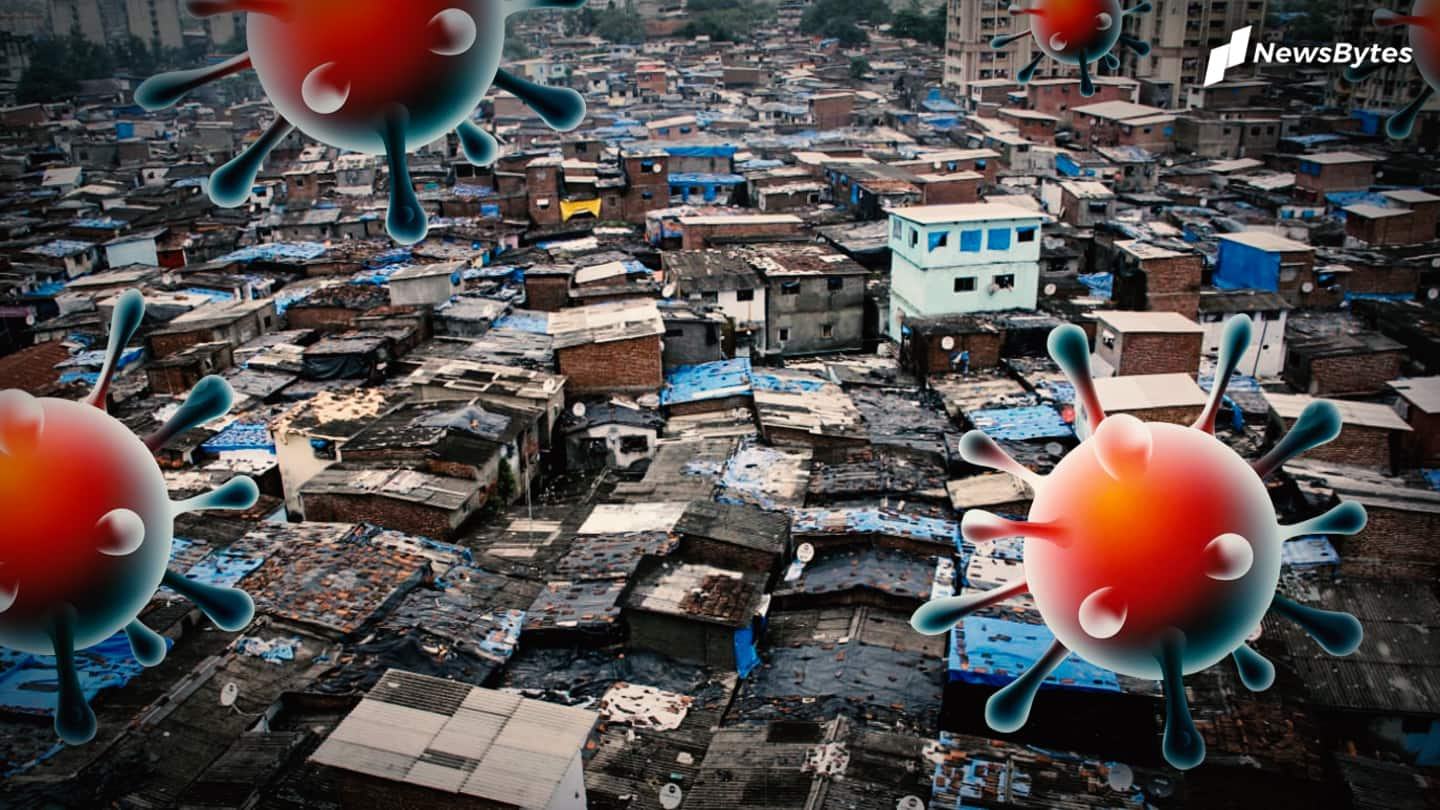
Coronavirus infected 57% slum-dwellers, 16% societies' residents in Mumbai: Survey
What's the story
A sero-survey, conducted by Brihanmumbai Municipal Corporation (BMC) in Mumbai to judge the extent of the spread of coronavirus, found that more people living in slums were exposed to the deadly virus than those staying in other areas.
57% slum-dwellers of the 6,936 people tested developed antibodies against the virus as compared to 16% living in societies.
Here are more details.
Survey
None of the respondents had taken the RT-PCR test
The survey, done in collaboration with NITI Aayog and Tata Institute of Fundamental Research (TIFR), covered wards R North (Dahisar), M West (Chembur), and F North (Sion, GTB Nagar, and Matunga).
None of the respondents had taken the RT-PCR test, the most reliable mode of judging infection, earlier. This implies that either all of them were asymptomatic or didn't have serious enough symptoms.
Gender
More women developed antibodies against coronavirus than men
It was concluded that more women than men had developed antibodies. In slums, of the 2,297 women tested, 59.3% developed antibodies. In contrast, 53.2% of 1,937 men tested had developed antibodies.
The same trend was observed in other areas. 16.8% of women and 14.9% of men tested got antibodies against the virus.
However, testing data shows that till now more men have been infected.
Data
While survey was seamless in slums, non-slums remained tricky
Among localities, the survey found 40.5% have been exposed to coronavirus in Matunga, Chembur, and Dahisar. At Matunga, this figure was 57.8%.
Notably, Matunga isn't far from Dharavi, once a coronavirus hotspot.
For the survey, samples were collected earlier this month. The idea was to test 4,000-4,500 in slums and an equal number in non-slums, but "non-cooperative" residents in latter areas derailed efforts.
Slums
Less space and social distancing emboldened virus' spread in slums
The high exposure in slums is credited to cramped spaces, lack of social distancing, and the fact that residents share facilities like toilets.
Some experts saw the results as encouraging, opining that it raises hopes of herd immunity, which is developed after 60% of the population is exposed to the virus.
A BMC official said the results were better than in several countries.
Quote
Expert believes slums will get herd immunity faster
Commenting on the findings and its connection with herd immunity, Maharashtra State Epidemiologist Dr. Pradeep Awate, said, "Development of only IgG antibodies is not immunity, a body needs to develop cellular immunity. But yes, slums will attain herd immunity faster than the general population."
Plans
Officials will return to wards again to understand changes
Explaining why women developed more antibodies than men, clinical scientist Dr. Gagandeep Kang said, "While infection occurs similarly in men and women, estrogen in women protects them from the disease."
Reportedly, the three wards were chosen when they had high, medium, and a low number of cases. From August 10, the officials will return there to understand to what extent the situation has changed.
Numbers
Mumbai continues to be worst-hit but got slight relief recently
On a related note, Mumbai continues to remain the worst-hit city with 137,059 total cases and 6,187 deaths.
However, for the first time in three months, Mumbai recorded 700 fresh cases on Monday.
Happy with the results, Shiv Sena's Aaditya Thackeray tweeted, "A major relief after 3 months. Caution: don't let the guard down! Don't let your mask down! Only get numbers down!"